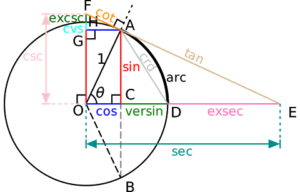In the modern world, with its sense of image, popularity polls and populous mantra; a more primitive relative may observe this behaviour and trend as wishy-washy and indecisive.
Think about the general trend that has become common place, talent shows like Idol, X factor, Voice; shows like Big Brother where people are voted out. Can you say Bah! We follow like sheep, chasing the populous’s approval, hoping it will lead to our goals of increased sales, profit, reduction of wasteful spending.
These shows are a sign of the times, we want to know our profitability before we even start building. Even when built we do trials to tweak or discard prototypes. Feedback has become the double edged sword that can destroy an otherwise perfectly good idea or “hone it to perfection”. All heavily skewed by general knowledge, biases and experiences of the sampled group, dangerous territory for a cutting edge, revolutionary concept or product. The old axiom “the customer doesn’t know what they want, until they see it”, springs to mind.
For the known domain, where the type of product is well established and only slight variation, in either packaging or product is the goal then feedback is definitely the path forward. All the variables are well known or they follow well defined parameters. In this environment feedback enhances, tweaks and maximises but what about more unknown or unexplored environments? What about original thought?
In these more abstract, uncertain, unknown and unexplored conditions experimentation not feedback is the only true viable option.
Let me clarify. Feedback in this context does not include the information gathered by the investigative experimentation from analysis; even though technically results are a type of feedback.
Feedback is considered here as the third party opinions often collected and given even when not asked for. The designed by committee, too many cooks and option paralysis scenarios, most of us have felt it; when the process becomes too process heavy, that forward movement is but an illusion. The end result is often frustration, depression and often listlessness, we are emotionally like sharks and require forward movement to maintain our happiness.
This double edged sword, feedback is seen, even in our everyday lives, in the auto correct functions of word processors, the GPS navigational aids, calculators and even in programming tools to aid the programer. They all have their place and offer improvements in efficiency, yet they also take and undermine.
How many of us have checked to see that auto correct has “corrected” our spelling in an inappropriate manner, hopefully we catch it before we hit the send button.
Calculators are a useful tool, yet we have reduced or lost the ability to do mental arithmetic, in the pursuit for a rapid answer. People now days find it difficult to mentally estimate the total of their shopping, to see if they have enough money to cover it. Without a calculator the modern world stops.
Programming tools are a valuable tool and offer feedback upon our coding options and are often relied upon, for increased speed and guidance. The problem is that it can become a crutch, undermining and slowing the development of coding proficiency. The easy answer given by tools such as this, tempt us into a false sense of ability and takes from us the opportunities of discovering our own techniques and understanding of the code.
My personal favourite would have to be GPS navigation, I hate this one and therefore don’t have it. The course is plotted and locked into your Nav computer and you prefer to do something different, maybe you don’t like U-turns, it’s a very busy intersection, whatever the case, the GPS get almost annoyed offering recalculations again and again, demanding you comply. Then the pinnacle of folly, drivers that drive off cliffs etc by blindly following their GPS tools.
The reliance upon the feedback, given by an ever increasing number of auto correctional tools has resulted in a stifling of human ability for self analysis. The fundamental flaw with feedback mechanisms is that they often suffer from a static and fixed reference point. The coding tools can only give you the options its developers knew. The GPS navigation is only as accurate as its data and does not know your emotional state or wether you hate U turns, you the driver should be in positive control of your vehicle at all times and not defer part of the responsibility to a disembodied voice.
Feedback should never be the sword used to control or influence our direction or outcome, it’s a guide a sounding board. It should be part of the equation but never the solution.
Designed by committee, how many times have we all suffered through this and option paralysis. It all starts as a good idea if we can get a sense of what is required or in what direction we should head, then things will become clear and we will have a greater chance of success. The irony is that when we defer control to external influences we often lose our way. The reason for this is basic, we’re all different so what others may suggest usually doesn’t gel for us.
Feedback should be a guide, a navigational aid for our endeavours.

